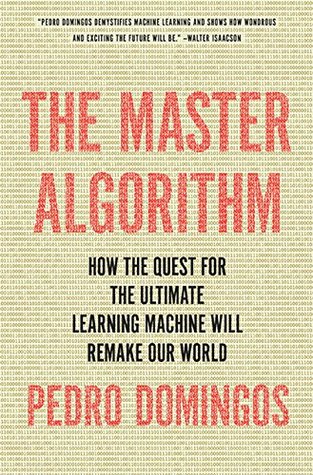More on this book
Community
Kindle Notes & Highlights
Read between
March 19 - March 29, 2020
Edward Thorndike called this the law of effect: actions that lead to pleasure are more likely to be repeated in the future; actions that lead to pain, less so.
After you’ve mastered your golf swing or tennis serve, you can spend years perfecting it, but all those years make less difference than the first few weeks did. You get better with practice, but not at a constant rate: at first you improve quickly, then not so quickly, then very slowly.
The Master Algorithm is the unifier of machine learning: it lets any application use any learner, by abstracting the learners into a common form that is all the applications need to know.
Representation is the formal language in which the learner expresses its models.
Optimization is the algorithm that searches for the highest-scoring model and returns it.
In computer science, a problem isn’t really solved until it’s solved efficiently.
Everyone will have a detailed model of him- or herself, and these models will talk to each other all the time. If you’re looking for a job and company X is looking to hire, its model will interview your model.
In the world of the Master Algorithm, “my people will call your people” becomes “my program will call your program.”
what about a model of what makes a hotel good or bad in general, which you could use to rate hotels that currently have few or no reliable reviews? TripAdvisor could learn it, but what about a model of what makes a hotel good or bad for you? This requires information about you that you may not want to share with TripAdvisor. What you’d like is a trusted party that combines the two types of data and gives you the results.
Everybody loves your data, and no wonder: it’s the gateway to your world, your money, your vote, even your heart.
a new type of company that is to your data what your bank is to your money.
The best way to not lose your job is to automate it yourself. Then you’ll have time for all the parts of it that you didn’t before and that a computer won’t be able to do any time soon.
Think of big data as an extension of your senses and learning algorithms as an extension of your brain.
Data and intuition are like horse and rider, and you don’t try to outrun a horse; you ride it.
Eventually, we’ll start talking about the employment rate instead of the unemployment one and reducing it will be seen as a sign of progress.
In this, as in many other areas, the greatest benefit of machine learning may ultimately be not what the machines learn but what we learn by teaching them.
Download some data sets from the UCI repository (archive.ics.uci.edu/ml/) and start playing.


